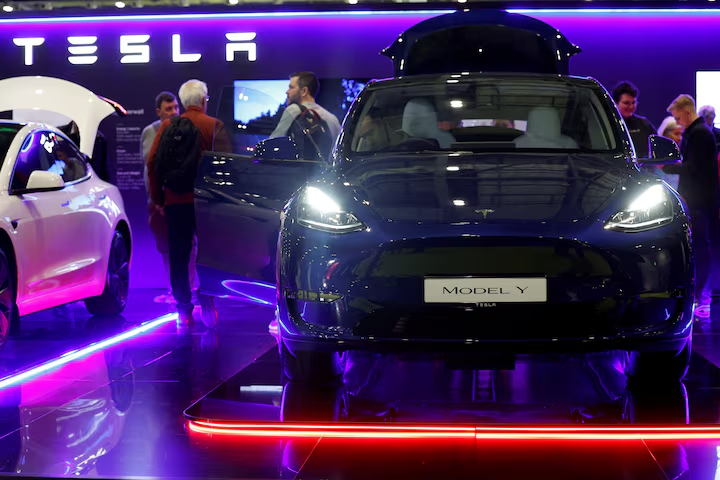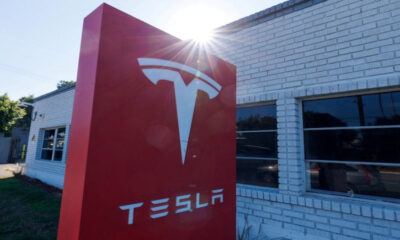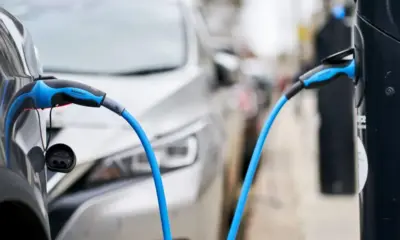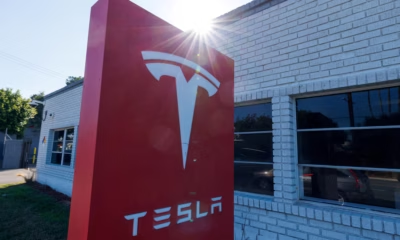News
Tesla’s UK Car Sales Fall by Half in October, New Data Reveals

Tesla’s sales in the United Kingdom dropped sharply in October, with registrations falling by more than half compared to the same month last year, according to figures released by the research group New Automotive. The data suggests that demand for the electric vehicle maker’s popular models is cooling amid growing competition and shifting consumer preferences in the UK’s fast-evolving EV market.
New Automotive reported that Tesla registered just over 2,900 new vehicles in October, a steep decline from more than 6,000 units in the same month of 2024. The company’s share of the UK’s battery electric vehicle market fell to 7.5 percent, down from nearly 15 percent a year earlier. Analysts say the drop reflects both increased competition from rival carmakers and a temporary slowdown in deliveries due to production adjustments.
“Tesla’s October numbers show that the UK electric vehicle market is maturing,” said Ben Nelmes, chief executive of New Automotive. “Consumers now have more choice than ever, with strong offerings from brands like BMW, BYD, Kia, and Volkswagen. The early dominance of Tesla is giving way to a much more diversified market.”
Despite the sharp decline in Tesla’s monthly performance, the broader picture for electric cars in the UK remains positive. Battery-powered vehicles accounted for more than 20 percent of all new registrations last month, supported by government incentives and growing public interest in sustainable mobility. Overall car sales rose slightly compared with the same period last year, suggesting that the market as a whole remains resilient.
Industry experts noted that Tesla’s delivery patterns tend to fluctuate month by month, often depending on production cycles and shipping schedules from its European Gigafactory in Berlin. “Tesla’s sales data can be quite volatile,” said automotive analyst David Bailey of the University of Birmingham. “It’s not unusual to see sharp dips followed by strong rebounds in later months, especially around the end of a financial quarter.”
Even so, the decline adds pressure on the company at a time when it faces intensifying global competition and growing scrutiny of its pricing strategy. Tesla has cut prices several times this year across key models, including the Model 3 and Model Y, in an effort to boost sales volumes. However, those price cuts have also squeezed margins, leading investors to question whether the company can sustain its profitability.
The slowdown in the UK comes as Chinese EV manufacturers, including BYD and Nio, expand aggressively into the European market with competitively priced models and long-range capabilities. These new entrants have drawn increasing attention from British consumers seeking affordable alternatives to Tesla’s premium offerings.
“Tesla remains a strong brand, but it is no longer the only game in town,” Bailey added. “The UK EV market is entering a new phase where brand loyalty will be tested and value for money will become the key battleground.”






















